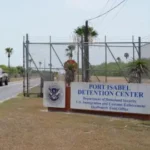In recent weeks, tensions have risen across East Africa as Tanzania’s President Samia Suluhu Hassan issued a stern warning to Kenyan activists contemplating interference in Tanzania’s internal affairs. This statement underscores the growing concern among Tanzanian leadership about external influences that could destabilize the nation’s social and political fabric.
The Context of the Warning
Tanzania, known for its stable political landscape under President Hassan’s leadership, has recently faced increased scrutiny from international and regional actors. While the country has maintained a relatively open political environment, authorities have been cautious about foreign influences that could disrupt national unity. The warning from President Hassan is perceived as a decisive step to reinforce sovereignty amid reports of Kenyan activists engaging in activities deemed as meddling.
What Did the President Say?
During a national address, President Hassan emphasized, “We do not welcome external interference in our internal matters. Kenyan activists should respect Tanzania’s sovereignty and refrain from actions that threaten our peace and stability.” She further warned that any attempt to destabilize Tanzania through external influences would be met with firm resistance, emphasizing the government’s commitment to protecting national interests.
Evidence of External Influence
Reports indicate that some Kenyan activists have been involved in organizing protests and disseminating information aimed at influencing Tanzanian politics. While these activities are often framed as advocating for human rights and democracy, Tanzanian authorities argue that they sometimes cross into interference, especially when they challenge government policies or stir unrest.
An example includes allegations that certain Kenyan groups have been supporting opposition figures or rallying support for protests against the Tanzanian government’s policies on issues like health, governance, and environmental conservation. These activities have raised concerns about external actors exploiting regional ties to influence Tanzania’s political landscape.
Regional and International Reactions
The Tanzanian government’s stance has garnered mixed reactions within the region. Some leaders recognize Tanzania’s right to defend its sovereignty, emphasizing non-interference principles enshrined in regional agreements like the East African Community (EAC). Others, including human rights advocates, caution against overly restrictive measures that could limit legitimate activism and dialogue.
The African Union (AU) has also called for respecting national sovereignty and encouraging dialogue rather than confrontation. However, the Tanzanian government’s firm language indicates its determination to curb what it perceives as destabilizing external influences.
Legal and Diplomatic Measures
In addition to public warnings, Tanzania has taken concrete steps to monitor and restrict activities deemed as interference. These include increased surveillance of foreign-funded organizations, stricter regulations on protests, and diplomatic engagements with neighboring countries to discourage support for activities that undermine Tanzania’s stability.
Legal experts note that Tanzania’s laws on foreign interference are aligned with international standards, allowing the government to act against activities that threaten national security. The government’s approach reflects a broader regional trend of safeguarding sovereignty amid rising geopolitical tensions.
Implications for Kenya and the Region
Kenyan activists and political groups are advised to exercise caution and respect Tanzania’s sovereignty. While regional cooperation is vital, crossing boundaries that threaten stability can lead to diplomatic strains and undermine regional integration efforts.
This warning also serves as a reminder of the importance of respecting national borders and internal policies. It highlights the delicate balance between activism and interference, emphasizing that regional actors must work collaboratively without overstepping their bounds.
Conclusion
President Samia Suluhu Hassan’s warning is a clear message to Kenyan activists and external actors: Tanzania values its sovereignty and will take necessary measures to protect it. As East Africa continues to evolve politically and socially, maintaining respect for national boundaries and promoting constructive regional cooperation remain crucial. Both governments and activists should prioritize dialogue, understanding, and respect to foster a peaceful and stable region.
The Context of the Warning
Tanzania, known for its stable political landscape under President Hassan’s leadership, has recently faced increased scrutiny from international and regional actors. While the country has maintained a relatively open political environment, authorities have been cautious about foreign influences that could disrupt national unity. The warning from President Hassan is perceived as a decisive step to reinforce sovereignty amid reports of Kenyan activists engaging in activities deemed as meddling.
What Did the President Say?
During a national address, President Hassan emphasized, “We do not welcome external interference in our internal matters. Kenyan activists should respect Tanzania’s sovereignty and refrain from actions that threaten our peace and stability.” She further warned that any attempt to destabilize Tanzania through external influences would be met with firm resistance, emphasizing the government’s commitment to protecting national interests.
Evidence of External Influence
Reports indicate that some Kenyan activists have been involved in organizing protests and disseminating information aimed at influencing Tanzanian politics. While these activities are often framed as advocating for human rights and democracy, Tanzanian authorities argue that they sometimes cross into interference, especially when they challenge government policies or stir unrest.
An example includes allegations that certain Kenyan groups have been supporting opposition figures or rallying support for protests against the Tanzanian government’s policies on issues like health, governance, and environmental conservation. These activities have raised concerns about external actors exploiting regional ties to influence Tanzania’s political landscape.
Regional and International Reactions
The Tanzanian government’s stance has garnered mixed reactions within the region. Some leaders recognize Tanzania’s right to defend its sovereignty, emphasizing non-interference principles enshrined in regional agreements like the East African Community (EAC). Others, including human rights advocates, caution against overly restrictive measures that could limit legitimate activism and dialogue.
The African Union (AU) has also called for respecting national sovereignty and encouraging dialogue rather than confrontation. However, the Tanzanian government’s firm language indicates its determination to curb what it perceives as destabilizing external influences.
Legal and Diplomatic Measures
In addition to public warnings, Tanzania has taken concrete steps to monitor and restrict activities deemed as interference. These include increased surveillance of foreign-funded organizations, stricter regulations on protests, and diplomatic engagements with neighboring countries to discourage support for activities that undermine Tanzania’s stability.
Legal experts note that Tanzania’s laws on foreign interference are aligned with international standards, allowing the government to act against activities that threaten national security. The government’s approach reflects a broader regional trend of safeguarding sovereignty amid rising geopolitical tensions.
Implications for Kenya and the Region
Kenyan activists and political groups are advised to exercise caution and respect Tanzania’s sovereignty. While regional cooperation is vital, crossing boundaries that threaten stability can lead to diplomatic strains and undermine regional integration efforts.
This warning also serves as a reminder of the importance of respecting national borders and internal policies. It highlights the delicate balance between activism and interference, emphasizing that regional actors must work collaboratively without overstepping their bounds.
Conclusion
President Samia Suluhu Hassan’s warning is a clear message to Kenyan activists and external actors: Tanzania values its sovereignty and will take necessary measures to protect it. As East Africa continues to evolve politically and socially, maintaining respect for national boundaries and promoting constructive regional cooperation remain crucial. Both governments and activists should prioritize dialogue, understanding, and respect to foster a peaceful and stable region.
Email Us on editorial@nnafrica.com













